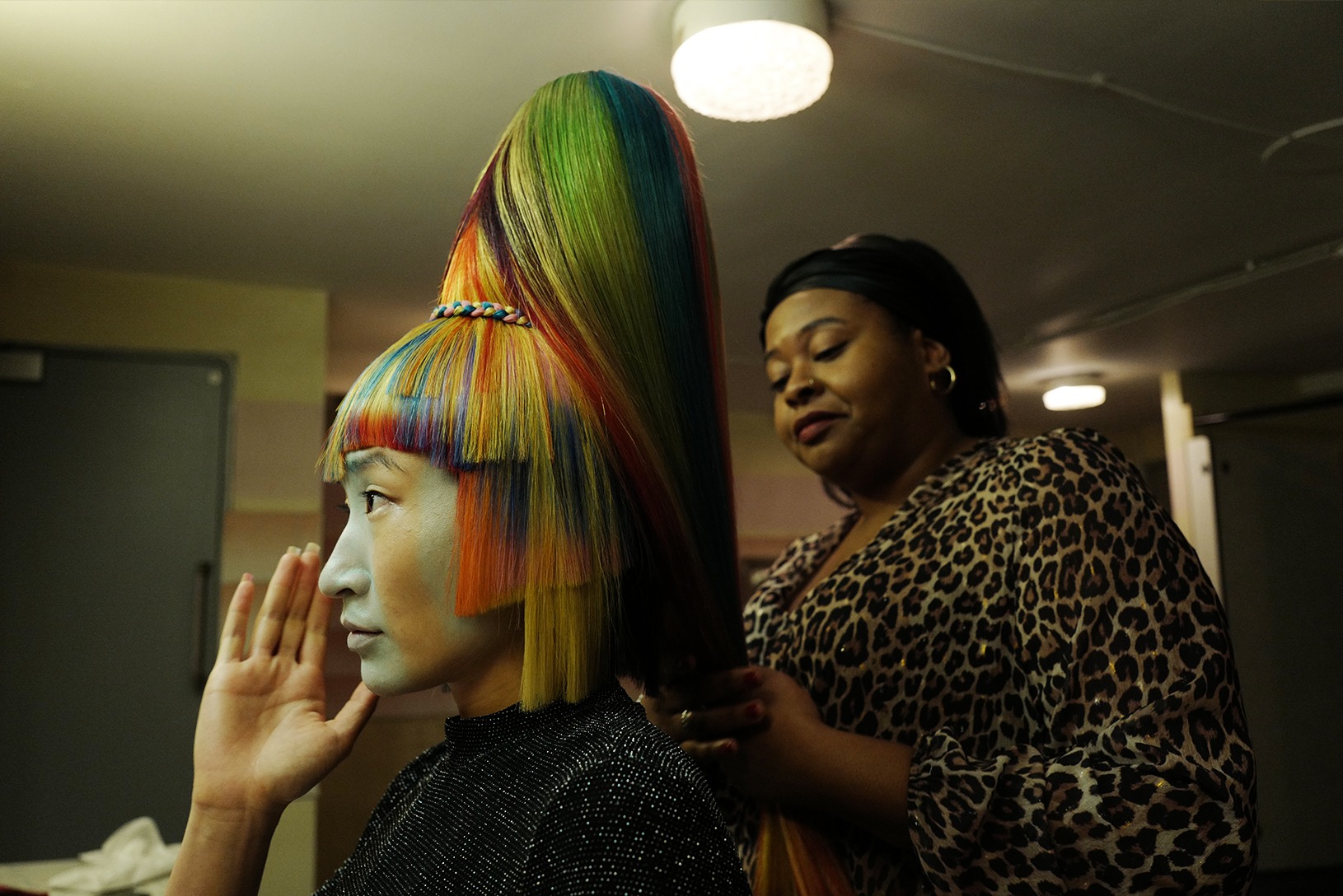
Review: Medusa Deluxe
By India Gwyn-Williams, University of Sussex
Reviewed as part of CINECITY The Brighton Film Festival – Dukes at Komedia 18 Nov 22.
This film, written and directed by Thomas Hardiman, is a murder mystery, set in a hairdressing salon where a regional competition is postponed following a gruesome murder. It is shot in one take, making a seamless, uninterrupted passing of events – a story of ‘community, which falls apart and comes back together again’, in the words of our director.
While the setting of the film is one initially connoting beauty and poise and talent, its association with a gruesome, untimely murder threatens our usual interpretation of hairdressers. We are introduced In media res, where two hair stylists and one model share a backstage room, discussing the horrifying death of Mosca (John Alan Roberts). With the film being a classic ‘whodunnit’, we as the audience subconsciously try to solve the mystery ourselves, able to see what others cannot, but bound in silence as an observer of the film rather than a participant. I feel Hardiman was aware of this notion, and as a result, quiet, fleeting moments of suspicion are dropped in from the very first scene. Indeed our opening character, Cleave (Clare Perkins) is not necessarily suspicious, but certainly capable of murder – from her first appearance she is perceptibly angry, and completely lacking in empathy for the murder despite its horrific nature, simply because it postponed her chance at success.
However, Hardiman cleverly does not deem all characters as capable of murder like Cleave or Kendra (Harriet Webb) who is equally threatening, but rather inconspicuous, perhaps knowing of something others do not. Gac, a security guard played by Heider Ali, falls into this narrative. His character struck me early on, as his first appearance seems harmless, yet ultimately, he ignites our suspicion fervently. As we watch, our opinion completely changes, due to the filming element.
Indeed the choice of a one-shot take means events are seamlessly continued – we are transitioned by the movement of characters, the reflection of mirrors, and placement of inanimate objects rather than by order of events. As the camera movement is dictated by the characters, the audience is acquiescent to what we see, and unable to do anything but experience first-hand their concern, anger and passion. Hardiman has completely immersed us in the film’s sequence, but we are passive within it, unable to follow characters through choice and instead experiencing with whoever the camera follows. Hardiman has made us knowing observers – helpless in communicating with characters, but omniscient, seeing what they cannot. This complicated, prominent choice and impressive execution of it only highlights the detail of the story. Perhaps Hardiman wanted to reflect realism and genuine motions of life by romanticising completely disposable shots of people walking or styling hair. On the other hand, our director may simply not want to deter our attention, instead forcing us to spend time with every character. Either way, the cinematography was beautiful. It was personal, intimate, we could not help empathising and worrying, and it was impossible to turn away.
The film is encapsulating, visually stunning, and despite an unnerving plot, Hardiman manages to reveal a comedic element. The gruesome murder which drips into the lives of these characters does not work alone in making Medusa Deluxe a deep and exciting watch, rather it is the visuals, comedy, characters and mystery combined, which make a truly brilliant piece, as sentient as anyone who watches.
